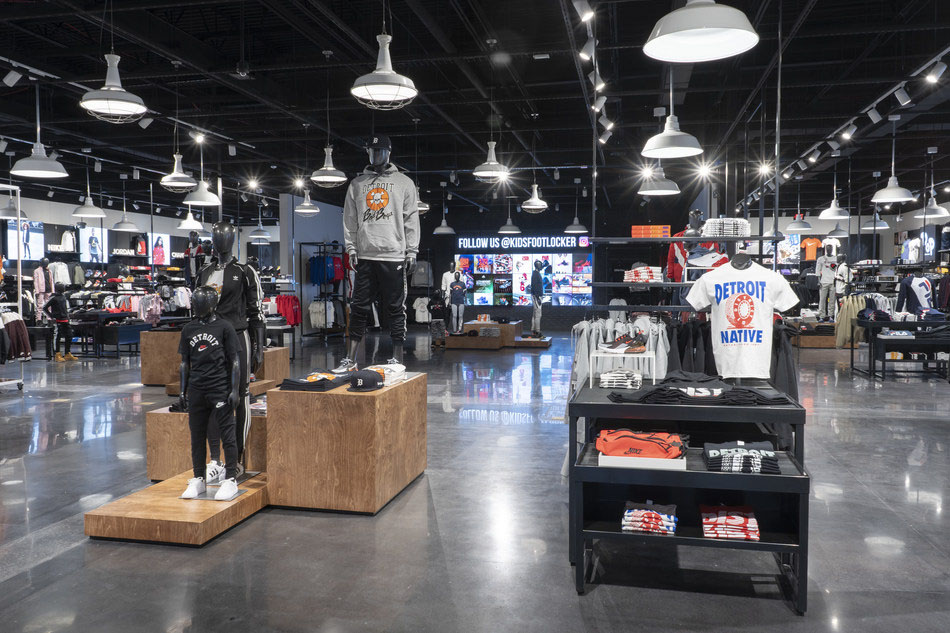New Foot Locker concept is powered by local culture
Foot Locker has long been a standby shoe store in shopping malls throughout the states. But the chain is ramping up efforts to send U.S. sneaker fans flocking to a standalone experiential store concept, a strategy that it’s already piloted abroad.
Foot Locker announced the opening of its new Power Store concept in the metro Detroit area (its first in the U.S.) last week. The retailer envisions the store as a hub for local sneaker culture, art, music and sports. The store, decorated with art from a local artist, will host community-oriented events like panel discussions and Q&As with DJs and rappers about various cultural and artistic topics. It will also feature exclusive products created by local designers geared toward an urban audience. The Power Store in Detroit is the first of 12 slated to open globally throughout 2019, with U.S. locations announced for Los Angeles, New York and Philadelphia. Currently there are Power Stores in London, Liverpool and Hong Kong.

Many of the big shoe brands have been working to attract the “sneakerhead” subculture of athletic shoe enthusiast and collectors. Nike, Adidas, Puma and others have all been debuting exclusive and customizable products and finding new high-tech ways to turn product releases into experiential events. Foot Locker is one retailer that has joined sneaker brands in courting sneakerheads. For instance, the chain hosted an Augmented Reality (AR) scavenger hunt last year in Los Angeles for the newly-released Nike LeBron James shoe.
Even inside the mall, Foot Locker has been taking steps to differentiate itself as a retailer with the interests of serious sneakerheads at heart. The chain has begun partnering with some of the biggest sneaker and sportswear brands to open single-brand store locations. For instance, under its Footaction banner, Foot Locker operates a concept called Flight 23 which sells only Jordan-branded products.
But it’s apparent that the chain is pivoting away from the shopping mall. Last year, it announced the closure of more than 100 locations, mostly in malls that it characterized as deteriorating, according to Forbes.
THE QUESTION IS: Will Foot Locker succeed with standalone experiential concepts in the U.S. rather than with a mall focus? What will Foot Locker have to do to keep the experience interesting for customers and are there regions where these stores might perform better or worse?
Source: Matthew Stern, RetailWire.com



